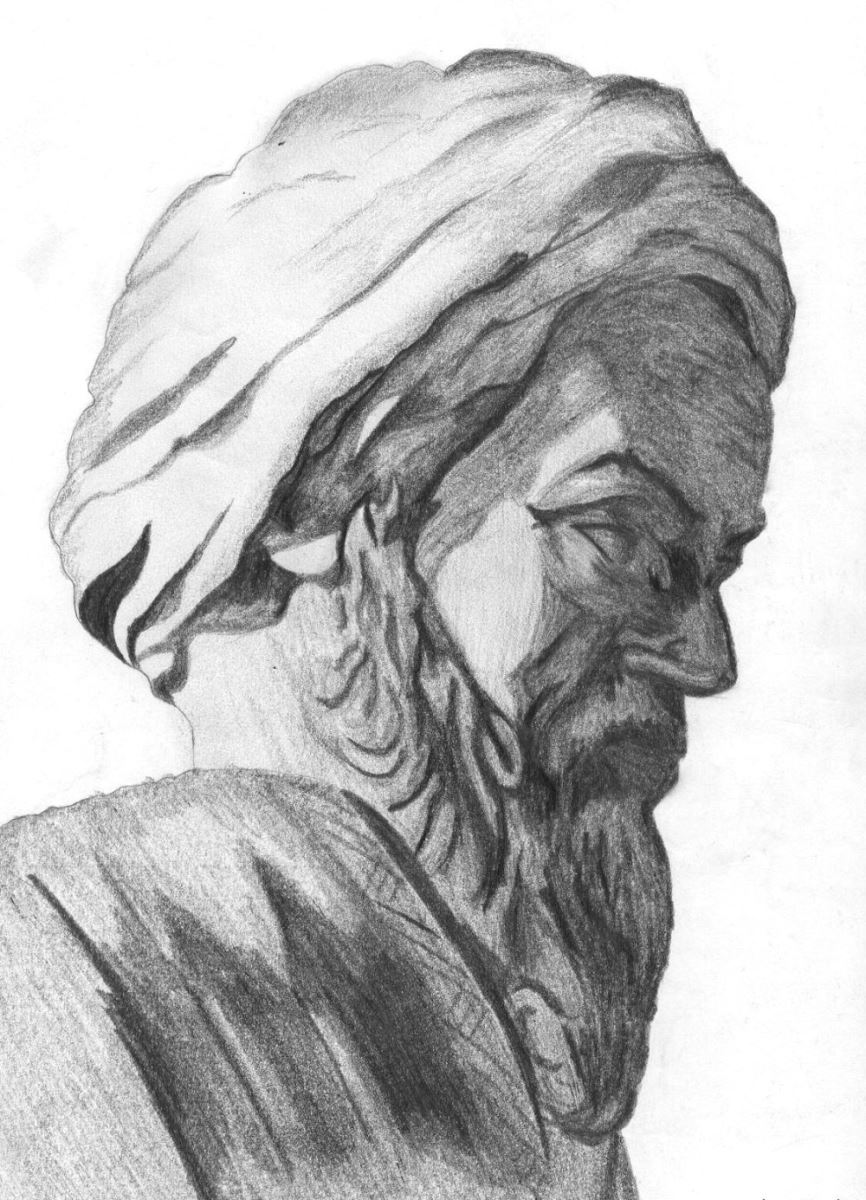Al-Razi, known as “Rhazes” in the West, was a physician, philosopher, and scholar who made fundamental contributions to many scientific fields, especially medicine, pioneering in the fields of pediatrics, obstetrics, and ophthalmology. A special feature of his medical system was that he favored cure through correct and regulated food, avoiding excessive use of chemical drugs. Moreover, he tested remedies on animals in order to evaluate their effects before using them on humans.

As an expert surgeon, Al-Razi was the first to use alcohol as antiseptic and opium as anesthesia. He was the first physician to find stones in the bladder, and he was the one who used seton in surgery. Al-Razi was interested in pharmacology and the preparation of medicines; he introduced the use of mercurial ointments and developed tools and instruments such as mortars, flasks, spatulas, and phials, which were used in pharmacies until the early 20th century.
Al-Razi left behind more than 200 books and manuscripts containing extracts from earlier scholars regarding diseases and therapy, in addition to numerous records from his own medical practice. He innovated a lot of theories that contributed to the development of medicine at that time; most of his books were translated into European languages and used in many European universities.
One of the greatest books written by Al-Razi was Kitab al-Hawi; the largest medical encyclopedia of all the medical discoveries made during Al-Razi’s era, in addition to his own discoveries. This book dealt with different diseases and their treatment; it also dealt with special pharmacological topics connected with certain disorders. In this book, Al-Razi criticized the views of Galen on the progression of fevers, as he personally encountered cases that did not conform to Galen’s Patterns.
Another famous book by Al-Razi was Al-Tibb Al-Mansouri, which tackled various medical issues on internal medicine, surgery, and ophthalmology. Al-Razi is recognized as the first physician to clinically differentiate small pox from measles as a separate disease. In his book Kitab Al-Judari wa Al-Hasbah, Al-Razi formulated the first known description of smallpox and measles, defining the symptoms and causes of the two diseases.
During the Medieval period, doctors were not always available. Thus Al-Razi wrote a book entitled Man La Yahduruhu Al-Tabib, which was like a home medical manual dedicated to the poor, the traveler, and the ordinary citizen who could consult it for the treatment of common diseases such as headaches, colds, coughing, and diseases of the eye, ear, and stomach.
Al-Razi wrote many articles on allergy and immunology, and he was the first to discover allergic asthma. He discusses seasonal rhinitis and the reasons behind its occurrence after smelling a rose during Spring. Al-Razi realized that fever is a natural defense mechanism as it is the body’s way of fighting disease.
Throughout his writings, Al-Razi refrained from correcting Galen’s theories, but his criticism was in the areas of logic and clinical applications. There is no doubt that Al-Razi was recognized as the best physician of his time who had fully absorbed Greek medical learning, and his contributions greatly influenced the development of modern medicine.
References
en.wikipedia.org
www.encyclopedia.com
www.britannica.com